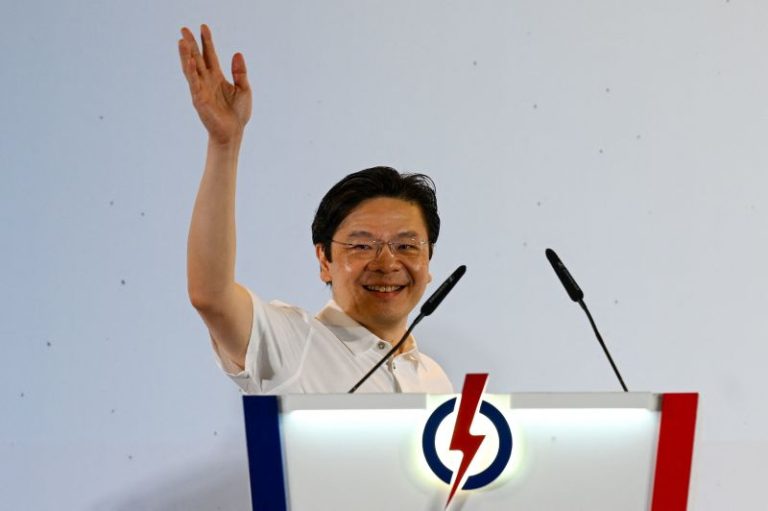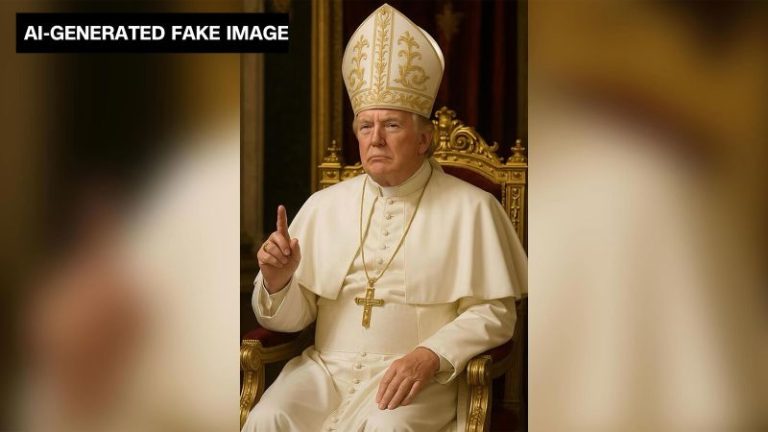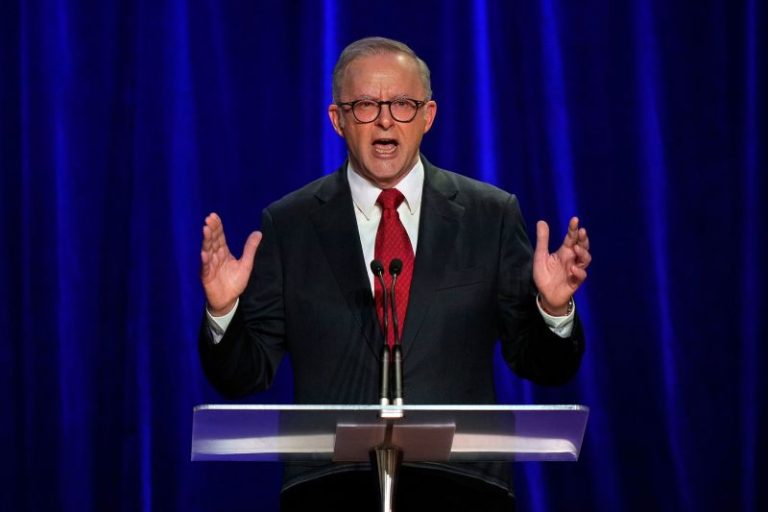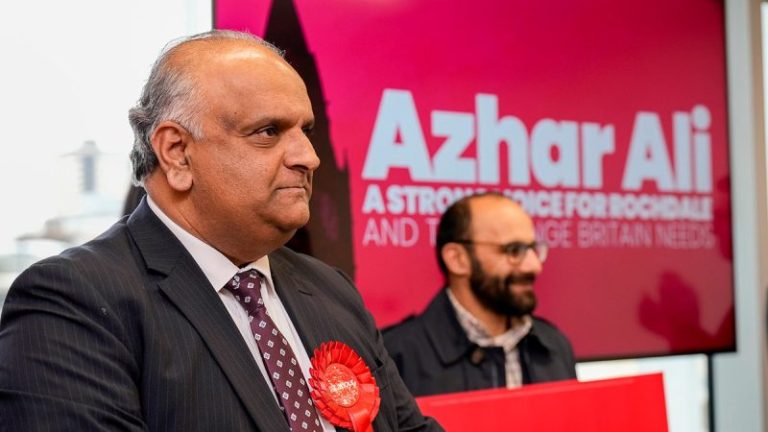Australians delivered a surprise election result on Saturday; not because of who won but by the scale of the victory.
It marks a strong recovery for Prime Minister Anthony Albanese and his center-left Labor party, which had been slumping in the polls earlier this year, and follows a similar swing away from conservatives in Canada in the early months of the second US presidency of Donald Trump.
As the final seats are allocated and the center-right Liberal Party surveys the damage – including the loss of its leader, Peter Dutton, from parliament – here are five takeaways.
Albanese’s defeat of Dutton mirrors the outcome of Canada’s federal election last week, where the once-struggling left-leaning Liberal Party soared to victory thanks to a Trump-inspired popularity boost.
In a remarkable political rebound, Canadian Prime Minister Mark Carney’s Liberals bested Pierre Poilievre’s Conservatives after Trump’s tariffs and threats to annex its neighbor changed the fortunes of the governing party, which had been trailing in the polls for years.
While Australia has not faced the same affront to its sovereignty as Canada, the similar election results show Trump’s influence in the domestic politics of longtime US allies.
Dutton was dubbed a ‘Temu Trump’ by his critics – a reference to the budget Chinese online marketplace – in a characterization that may have contributed to his downfall in Australia, where trust in the US has been eroded, according to recent surveys.
Despite claiming that he was his “own person,” Dutton was accused of stoking culture wars and took aim at migrants and the news media in rhetoric that resembled Trump’s.
Dutton spent weeks trying to distance himself from the tariff-tossing US leader, but it wasn’t enough to convince Australian voters that he was the right person to lead the country through this moment of global turmoil.
Saturday’s result made Albanese the first Australian prime minister to win re-election for 20 years, and could herald an end to the revolving door of leaders that has defined the nation’s politics since the turn of the millennium.
Albanese will start his second term with at least 85 seats in the 150-seat lower house – a significant majority in Australia – while the Liberal coalition currently holds just 37, according to the latest count by public broadcaster the ABC.
The country has had six different prime ministers in the last 18 years, most of whom lasted about three years in office, in line with the frequency of Australian elections. But a commanding win and healthy majority set Albanese up for another three years or even more. That potentially gives him the opportunity to shape the country’s politics in his and his party’s image in a way no leader has since the Liberals’ John Howard in the late 1990s and early 2000s.
During a time of trade turmoil, he was able to demonstrate a steady hand, striking an authoritative tone in response to Trump’s decision to impose 10% tariffs on Australia, which were later paused.
Dutton not only lost the national contest, but was also ousted from his own seat in the northeastern state of Queensland, in a shock defeat to Labor’s Ali France.
It was another echo of events in Canada, where Poilievre lost his longtime seat in rural Ottawa.
Dutton had held the Dickson seat for more than two decades, and had twice before seen off a challenge from France, a former journalist, world champion para-athlete and disability advocate who lost her leg in a 2011 accident.
After her victory, France paid tribute to her son Henry, who died from leukemia last year.
“My son, Henry, he wanted me to do this. He was convinced that I would win this,” France told Sky News after her win. “I thought I wouldn’t be running, because I would be caring for him. And he would say to me, ‘No, Mum, you have to do this. I know you’re going to win this this time.’ And I feel he’s been with me on this journey,” she said.
Dutton congratulated France in his concession speech Saturday, in which he also mentioned his political rival’s recent bereavement.
“I said to Ali, her son, Henry, would be incredibly proud of her tonight, and she’ll do a good job as a local member for Dickson,” Dutton said.
Cost of living and climate concerns outweighed culture wars
Australian voters put their faith in Albanese’s plans for tackling the high cost of living and climate change over Dutton’s Trump-style ideological approach, which at times did not appear to be backed by policy proposals.
Dutton called Indigenous “welcome to country” ceremonies “overdone” and said they shouldn’t be performed at sports games or military events. In 2023, Dutton successfully campaigned against the government’s referendum on the Voice proposal, which included constitutional recognition for Indigenous Australians.
He also claimed Australia takes in too many migrants, and branded the public broadcaster “hate media.”
Dutton vowed to crack down on “woke” culture and promised to end “indoctrination” in schools, before later clarifying his party didn’t have any plans to change the curriculum.
Australian voters, meanwhile, seemed more moved by cost-of-living concerns and climate change – two areas in which Dutton was seen as not having a strong enough strategy.
While Albanese was criticized for not doing enough to tame rising living costs during his first term, in the years ahead he’s promised a tax cut, cheaper medicines, lower deposits for first-time buyers and 1.2 million houses to ease the housing crisis.
Similarly, despite criticism over his approval of new coal and gas projects in his first term, Albanese reiterated his commitment to climate action, in contrast to the rolling assault inflicted by the new US administration on environment agencies and research.
All Australians know “renewable energy is an opportunity we must work together to seize for the future of our economy,” Albanese said to cheers.
As the son of a single mother who often talks about growing up on a housing estate, Albanese has long cast himself as champion for social mobility and a “kinder” form of politics.
“My mum had a hard life, and we struggled financially, but she taught me to always be positive and see the best in people when it comes to Australia’s future,” he said.
During the campaign, he frequently tried to distance himself and Dutton. Asked whether Trump had helped his campaign, by darkening the brand of strongman leaders, Albanese told the ABC on Monday that Dutton had done that by himself.
During his victory speech, Albanese shut down boos in the crowd when he mentioned he’d spoken to Dutton. “No, no,” he said to an enthusiastic crowd of Labor supporters in Sydney. “What we do in Australia is we treat people with respect,” he said to cheers.
Albanese didn’t mention Trump but alluded to his presence in campaign discussion. “We do not need to beg or borrow or copy from anywhere else. We do not seek out as inspiration overseas. We find it right here, in our values and in our people,” he said.
This post appeared first on cnn.com










